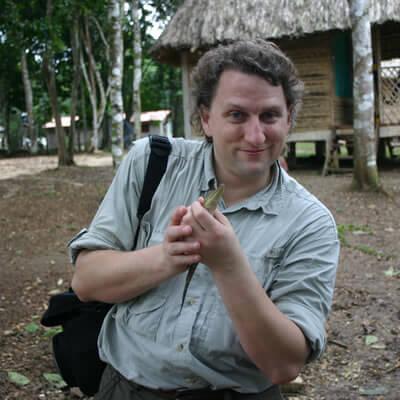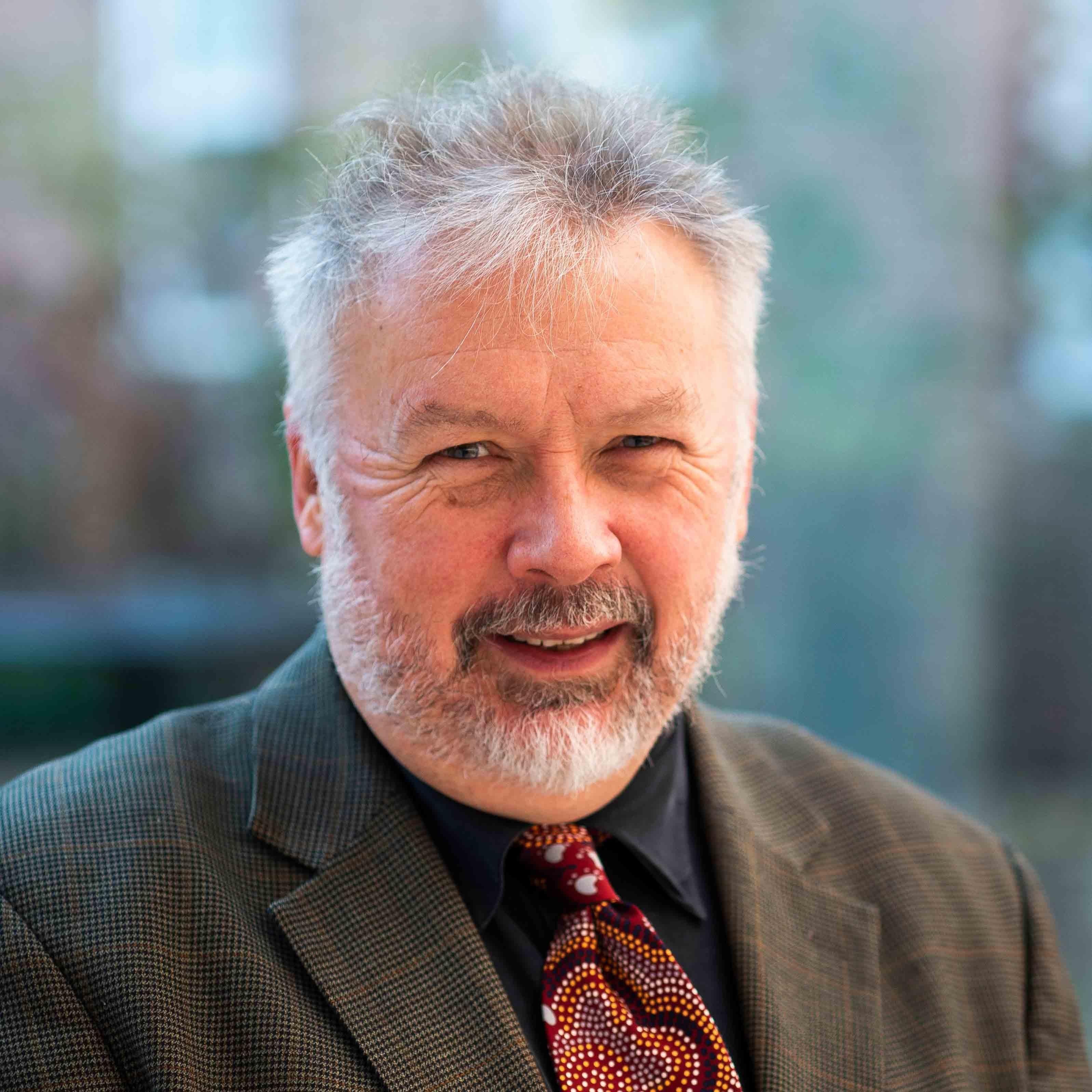Science and Global Change
Using science to understand and respond to the global climate crisis
Introduction
Global climate change, biodiversity crises and similar phenomena already impact our lives and will increasingly do so in the future.
Science and Global Change (SGC) uses scientific practice to explore global climate change and its impacts on human society, technology and security. Exploring the interactions of the Earth's systems, students examine:
- The nature of science, critical thinking and the interaction of scientific knowledge and the public;
- The causes and implications of global climate change and biodiversity changes across the span of time; and
- The means by which we can build a more resilient society to survive and reduce the impacts of these changes.
SGC prepares students to understand the changing conditions of the future and fosters critical thinking about the world around us. Students of all majors will benefit from an understanding of how science works, how the physical and biological environment is changing, and what our options are to build a more resilient society.
Colloquium and Lecture Topics
- A look at logical fallacies
- Science vs. Pseudoscience
- Why climates change, and how we know that is (partially) our fault
- The value of the biosphere
- Who pays for science?
Other Learning Opportunities
Students in SGC will observe evidence of global climate change both in class and through multiple learning opportunities outside the classroom. Past excursions have included:
- Travel to New York City and the American Museum of Natural History;
- Exploring the Smithsonian Museums;
- Visiting the Smithsonian Environmental Research Center and the Horn Point Laboratory; and
- Volunteering at Kenilworth Aquatic Gardens.
As part of the sophomore practicum, students will learn from and work closely with researchers, educators and practitioners of any STEMM (Science, Technology, Engineering, Mathematics, Medicine) field. Students have:
- Held internships in various labs at the National Institutes of Health, NASA and the Smithsonian Institution;
- Helped to construct wind turbines for communities in the Andes; and
- Developed educational experiences for the Annapolis Maritime Museum.
Curriculum Overview
Over the two-year program experience (four semesters), students will complete 9 credits of supporting courses that will count toward their SGC Scholars citation. In most cases, these will also fulfill General Education requirements. Note that your Scholars courses—colloquium, practicum and supporting course(s)—will generally be in addition to any courses you take to satisfy major requirements.
The following table represents a typical two-year curriculum, but individual schedules may vary. Details about courses and requirements can be found on the SGC Citation Checklist.
| SEMESTER | COURSES | CREDITS |
|---|---|---|
| Semester 1 | CPSG 100: Colloquium I | 1 credit |
| Semester 2 | CPSG 101: Colloquium II | 1 credit |
| Semester 3 | CPSG 200: Colloquium III | 1 credit |
| Semester 4 | CPSG 230: Internship; or CPSG 240: Service Learning or CPSG 250: Research; or CPSP 359G: Advanced Research (DSSP); or CPSP 359S: Discovery Research (DSSP) |
1-3 credits 1-3 credits 1-3 credits 1-3 credits 1-3 credits |
| Semester 1, 2, 3, or 4 | Citizenship and Diverse Perspectives (CDP) Course (DVCC 3 or DVUP) | 3 credits |
| Semester 1, 2, 3, or 4 | Supporting Course A (var. Gen Ed) Supporting Course B (var. Gen Ed) Supporting Course C (var. Gen Ed) |
3 credits 3 credits 3 credits |
Sponsoring College
Office Address
1216 Centreville Hall
Office Phone
Faculty


News and Notes, Etc.
The New York Times, The Case of the Tiny Tyrannosaurus Might Have Been Cracked, Oct. 2025
The Washington Post, One of science’s biggest dinosaur debates may finally be settled, Oct. 2025
NPR's All Things Considered, Scientists thought this fossil was a teen T. rex. Turns out it's a new tyrannosaur, Oct. 2025
Maryland Today, What’s Real and What’s Not in ‘Jurassic World Rebirth’: A UMD Paleontologist Explains, July 2025
Science and Global Change News
Scholars Celebrates Citation and Founders Circle Award Winners at Annual Ceremony
When the Citation class of 2023 entered the University of Maryland, they were already adjusting to a rapidly changing world being constantly reshaped by the Covid-19 global pandemic. One thing that didn’t change – their commitment to excellence in the classroom. All who successfully completed the requirements of their respective Scholars program received their official Scholars citation. But there were some that went above and beyond the expectations, leaving a lasting impact on the community.
Practicum Offers Hands-On Ways to Learn About ‘Complicated Issues In and Out of the Classroom'
Incoming students often hear about the various experiences that Scholars take on in their practica–the capstone project or culminating hands-on learning all College Park Scholars are required to complete in their second year. Though specific practicum requirements vary by Scholars program, students are commonly able to meet program needs by engaging in an internship, doing service-learning or conducting research.
Scholars recognizes Citation Class of 2022, Founders Circle Award winners
Students in College Park Scholars’s Citation Class of 2022 began their University of Maryland (UMD) careers in the fall of 2020, under the shadow of the COVID-19 pandemic. They spent their first year almost entirely online: Some Zoomed into their program colloquium from their double-turned-single dorm rooms; others attended virtually from their families’ homes, away from campus.
Course provides safe space to unpack power, privilege
When Michelle Pinkrah strolled into her first Thursdays-at-3:30 p.m. class of the semester in late January, she had no idea what she’d signed up for. She had signed up by accident, actually. The class wasn’t her first choice for her practicum course requirement with College Park Scholars, where she is a student, and she’d quickly forgotten it was even on her schedule. Pinkrah sat down in the circle of her peers and encountered something she hadn’t expected: a dialogue class, or, a class that centers around group discussion of life and experiences.
In-Person Service Day Relaunches With Enthusiasm
Kids bent over boxes of school supplies. Tubs of tomatoes, picked fresh off the vine. College students clad in waders, waist-deep in pond water. These were just a few of the scenes witnessed during College Park Scholars’ annual Service Day, which took place on Friday, Aug. 27, this year.
Despite Being Virtual, Scholars Showcases Promote Personal Interaction
For most University of Maryland (UMD) students, the end of the spring semester heralds the start of finals. But for sophomores in College Park Scholars, for the past 24 years, this time of year has signified Academic Showcase. The event, one of the largest exhibitions of undergraduate student learning on campus each year, typically involves more than 600 Scholars sophomores presenting on their capstone projects to fellow students, faculty, parents and other members of the UMD community.


